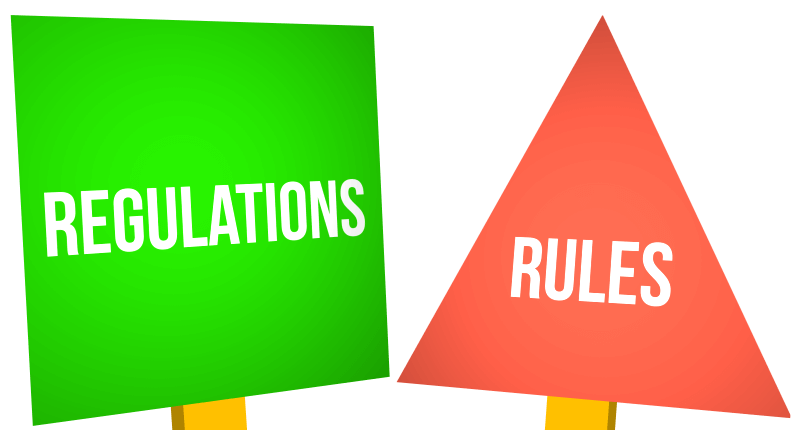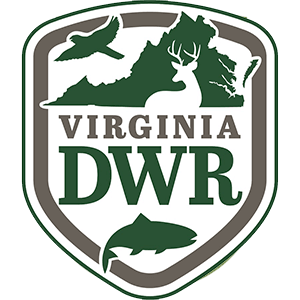Virginia Boating Laws and Regulations


Virginia Boating License - DGIF
In Virginia, all motorboat operators with a 10 hp motor or greater, regardless of age
AND
All PWC (personal watercraft e.g. a Jet ski, Sea Doo) operators need to take a NASBLA approved boating safety course.
Take your Official Virginia Boating Test online now and be certified for life across North America.
Virginia Boat Registration
The DGIF requires titling and registration for all:
- motorized vessels and
- sail-powered vessels (without a motor) greater than 18 feet in length
The following types of watercraft do not require registration:
- Non-motorized (powered by paddles or oars) vessels, e.g. canoes and kayaks.
- Boats used only on private waters
- An owner bringing a watercraft into Virginia from another state may operate the vessel for up to 90 consecutive days on the other state’s current, valid registration before registering it in Virginia.
How do I transfer ownership of a used boat in Virginia?
You will need to follow these steps:
-
Obtain a bill of sale: The buyer and seller must complete a bill of sale to document the transfer of ownership. You can use a generic bill of sale form or the Virginia Department of Wildlife Resources provides a specific form for this purpose.
-
Obtain the boat's title: The seller must provide the buyer with the boat's title, which is a legal document that proves ownership. If the seller cannot locate the title, they can apply for a duplicate copy from the Virginia Department of Wildlife Resources.
-
Complete the title transfer: The buyer must complete the back of the boat's title, including the purchase price, date of sale, and their contact information. The seller must sign the title to transfer ownership.
-
Obtain a notarized statement of gift (if applicable): If the boat is being given as a gift, the buyer and seller must complete a notarized statement of gift to waive any sales tax.
-
Pay the sales tax: Virginia requires the buyer to pay a sales tax on the purchase price of the boat. The sales tax rate varies based on the county where the boat is registered.
-
Register the boat: The buyer must register the boat with the Virginia Department of Wildlife Resources within 30 days of the purchase. To register the boat, the buyer will need to complete a registration form, provide proof of ownership, pay a registration fee, and show proof of sales tax payment.
-
Obtain new registration: Once the boat is registered, the buyer will receive a new registration card and a set of registration decals. The buyer must affix the decals to the boat and carry the registration card on board whenever the boat is in use.
Virginia Age and Education Requirements
For a motorboat, except for PWC, there is no minimum operator age in Virginia.
But all motorboat operators with a 10hp or greater motor need to complete a boating safety course to operate it.
No person under the age of 14 may operate a PWC. Those operators 14 and 15 MUST show proof of completing an approved and accepted boating safety course either in a classroom or online.
Virginia PFD requirements
According to Virginia boating laws, every vessel must carry one wearable USCG-approved PFD for each person on board. In ADDITION, at least 1 USCG approved Type IV (ring buoy or seat cushion) is required on all recreational boats 16 feet or greater except for:
- personal watercraft ;
- non-motorized canoes and kayaks 16’ in length or greater;
- racing shells, rowing sculls, racing canoes and racing kayaks;
- sail boards;
- vessels of the United States used by foreign competitors while practicing for or racing in competitions.
What age does a child have to wear a life jacket in Virginia?
Children 13 years old and younger must wear a USCG - approved life jacket at all times while underway on Federal Waters unless the child is below deck or inside the enclosed cabin of the boat.
Marine environment in Virginia
Submersed aquatic vegetation (SAV)
SAV are underwater plants which usually thrive in shallow waters less than 6 feet deep, and they are an important habitat for fish and shellfish, especially blue crab. As they are also an important food source for several species of waterfowl, it is vital not to damage these areas.
Scientific studies show that these beds can be scarred by a boat's propeller or by a larger vessel that runs aground, so boaters should be extra-careful when navigating through these beds.
Whales and dolphins
Stay 50 feet away from dolphins and 300 feet from whales.
Muffling Device in Virginia
Complaints from homeowners with property adjacent or close to bodies of water used for recreational boating have led to a state law requiring strict sound levels on boats.
While operating your powerboat in Virginia, you must equip it with a muffler in good working order, or an underwater exhaust system which is in good working order and in constant operation. It must be fitted with a suitable muffler that will prevent excessive or unusual noise.
The muffling device shall exhaust at or below the water line or it shall be equipped with mechanical baffles. The use of cutouts is prohibited.
Negligent and Reckless Operation in Virginia
Operating a pleasure craft while failing to exercise the appropriate degree of care necessary to prevent endangering persons or property could be construed as reckless boating, even if it is not intentional.
If someone operates a vessel with willful disregard for the safety of persons or property, that operator will be cited for reckless operation.
All operators are responsible for operating their vessel in a reasonable and prudent manner when it comes to the surrounding vessel traffic. They must respect the posted restrictions, the presence of a divers-down flag and all other possibly dangerous situations they may encounter so as not to put other lives at stake or that may damage or destroy property.
It is forbidden to operate a vessel, water skis or similar device:
- carelessly or heedlessly;
- without due caution;
- in disregard of the rights or safety of any person, vessel, or property;
- at a rate of speed or in such a manner that will endanger any person, vessel, or property.
Vessels must never be operated or allowed to be operated in an unsafe manner.
Law Enforcement Officer Request to Stop and Comply in Virginia
Consevation Police Officers employed by VDGIF are primarily tasked with enforcing the boating laws. These officers have full police powers and have the right to lawfully stop and board your boat at any time to check for proper registration and required safety equipment.
Enforcement officers have the authority to stop and board your boat and direct it to a suitable pier or anchorage in order to check for compliance with state and federal laws.
It is illegal to refuse to follow the directive of a person with law enforcement authority.
Operating under the influence of drugs and alcohol in Virginia
All boaters who operate in Virginia must follow its laws regarding the use of drugs or alcohol.
These laws apply to the operation of a vessel in the same way as vehicules have to obey the rules of the road.
Virginia law prohibits the operation of a boat by an operator with blood alcohol concentrations of .08% or more.
"Implied Consent" states that by operating a boat, the operator is agreeing to submit to a breath and/or blood test to determine the amount of alcohol and/or drugs in your blood.
"Zero Tolerance" prohibits persons younger than 21 from consuming alcohol and operating a watercraft with any measurable alcohol level (established at 0.02 percent).
If a person is convicted of operating a vessel under the influence of alcohol or drugs, the following penalties or both could apply:
- Imprisonment for up to 12 months
- Fines up to $2500
Personal Watercraft (PWC) in Virginia
PFD
Each person on a PWC or being towed by a PWC must wear a USCG approved PFD type I, II, III or V at all times. Inflatable life jackets are prohibited for PWC operators or passengers.
Lanyard
Operators on personal watercraft equipped with a lanyard-type engine cutoff switch must attach the lanyard to their clothing, PFD, themselves or as appropriate for the specific devices.
Hours
No person shall operate a personal watercraft between sunset and sunrise.
Boat accident in Virginia
In case of a collision or accident, the operator of a vessel shall render assistance as is practicable and neccessary so long as this action does not gravely endanger their own vessel, crew and passengers.
In some cases, the boater operating the vessel must submit a written accident report.
Boating - Safe Speed in Virginia
Speed limit laws apply for boats in certain areas and are determined by local ordinance. Special white buoys with orange markings will mark the zones where these laws take effect. While Virginia does not have speed limits on its waterways, you must always operate your boat so that it will not endanger others.
